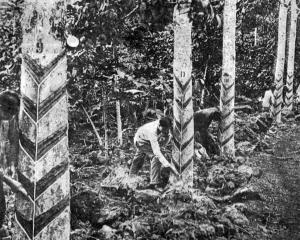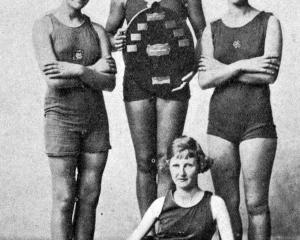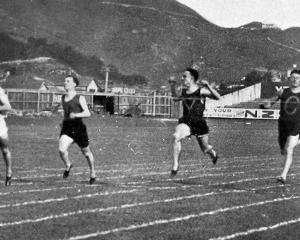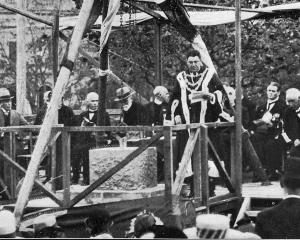Nine nations, including all the Great Powers - Great Britain, France, Russia, Germany, Austria-Hungary, Belgium, Servia, Turkey and Japan - at death grips, with the probability that Italy and other kingdoms may be drawn into the struggle; - such is the spectacle that 1914 will present to posterity.
Although the year was more than half advanced before the outbreak of war actually occurred, yet all previous happenings have been so dwarfed and overshadowed by the titanic death wrestle of the nations as to cause them to lose their normal significance.
The year opened with an average crop of industrial disputes in different parts of the world; whilst in Great Britain the depredations of the militant suffragettes continued to present a problem to politicians.
From January to July the Home Rule controversy waxed keen and bitter until the possibility of the occurrence of civil war was seriously discussed and the deportation of Indian immigrants from British Columbia promised Imperial difficulties in the near future.
The loss of the Empress of Ireland, with over 1000 lives, in the St. Lawrence River, was a marine disaster the magnitude of which was exceeded only by that two years previously connected with the wreck of the Titanic.
The average Briton's love of adventure and contempt for hardship were exemplified in Dr Mawson's expedition to the sub-Antarctic and in Sir Ernest Shackleton's preparations for another visit to the South Polar regions.
The completion of such a work of wonder as the Panama Canal would, in an ordinary year, alone entitle 1914 to be counted as an ''annus mirabilis'', and the advances that have been made in the art of aviation have been simply amazing.
All these, however, and other matters of almost equal moment, were, so to speak, blotted out of remembrance by the war cloud that began to gather on the horizon in the last days of June.
• An instance of neighbourly helpfulness has just come to light which redounds to the credit of Southlanders, whose hospitality is proverbial.
Some little time ago a man acquired a farm in Southland, and after getting settled down, his wife took a well deserved holiday to visit her relatives in Dunedin.
A couple of days after her departure the husband took seriously ill, and had to be removed in an ambulance to a hospital, where he underwent a serious operation.
The hasty news proved such a severe shock to his better half that she became prostrated with illness, with the result that the farm had to be left entirely in charge of their son, who is a mere lad.
There being no other alternative, the boy was left to act upon his own initiative until one of his relatives made a hurried journey from Dunedin to see how he was getting along.
On arrival he met a neighbouring farmer, who at once reassured him that at the moment half-a-dozen teams from adjoining farms were cultivating the fields during the enforced absence of the owner, who could rest assured that his farm was being well looked after. - ODT, 31.12.1914.
• COPIES OF PICTURE AVAILABLE FROM ODT FRONT OFFICE, LOWER STUART ST, OR WWW.OTAGOIMAGES.CO.NZ












